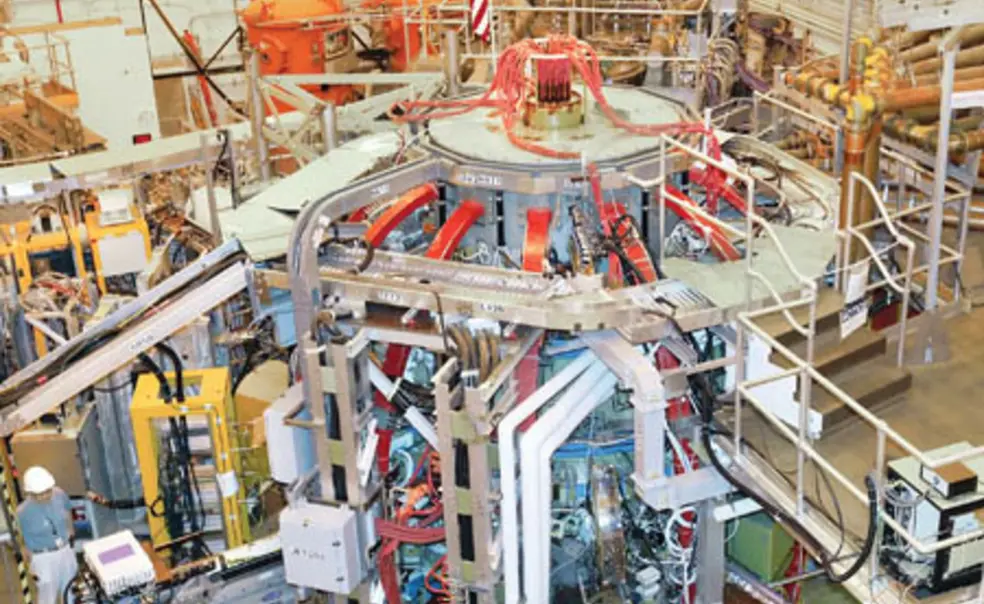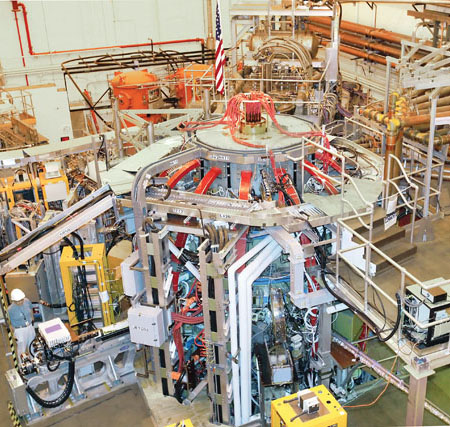Obama budget proposal would mean big cuts for PPPL
President Obama’s proposed budget for fiscal year 2013 calls for increases to several federal agencies that provide funding to the University, but would cut the Princeton Plasma Physics Lab’s $85 million budget by 12 percent.
Stewart Prager, the lab’s director, said the proposed $10 million reduction would be “very severe” and could reduce the number of employees at the lab by 100. The current staff is 454. “This would impede our scientific progress greatly,” he said.
PPPL, a leading fusion-research facility, is one of 10 national science laboratories supported by the Department of Energy’s Office of Science.
The reductions would cut $3.2 million from the budget for the lab’s primary fusion experiment, the National Spherical Torus Experiment, which studies the physics principles of spherically shaped plasmas — hot ionized gases confined in a magnetic field in which nuclear fusion will occur. The experiment was shut down in November 2011 for an upgrade that will dramatically increase its physics capability. The budget cuts would extend the upgrade work until November 2014, six months longer than originally planned, Prager said. Other experiments, such as those that explore basic aspects of plasma physics, would be “greatly impeded,” he said.
Obama’s proposal now goes to Congress, and changes are likely.
“We will be spending a lot of time in Washington over the next few months trying to get [the PPPL cuts] reversed,” President Tilghman said at a town hall meeting on campus in February.
PPPL receives more than a third of the University’s $251 million annual funding for sponsored research, which makes up about 17 percent of the University’s budget.
The University fared better in Obama’s proposal in programs that provide funding for faculty and students. Obama called for a modest increase in Pell grants for low-income students. National Science Foundation funds for graduate research fellowships would increase by 23 percent, and for faculty early-career development by 5 percent. Humanities funding would rise by 5 percent as well.
“Not across the board, but in general, education and research have been preserved within the president’s budget,” Tilghman said.













1 Response
Lee L. Kaplan ’73
10 Years AgoThe price of entitlements
It is disheartening, but not surprising, that President Obama’s FY2013 budget would slash $10 million (12 percent) from the Princeton Plasma Physics Lab budget (Campus Notebook, March 21). The lab is part of “discretionary” spending. Today “entitlements” devour almost 60 percent of the budget, and we are about to add a trillion or two with a health-care plan that defies economic logic by further divorcing the consumer of services from the responsibility for payment. In an era when restraining the inexorable growth of entitlements from 8 percent every year to 6 percent is decried as promoting “savage 25 percent cuts,” is it any wonder that real science suffers? Actions have consequences.